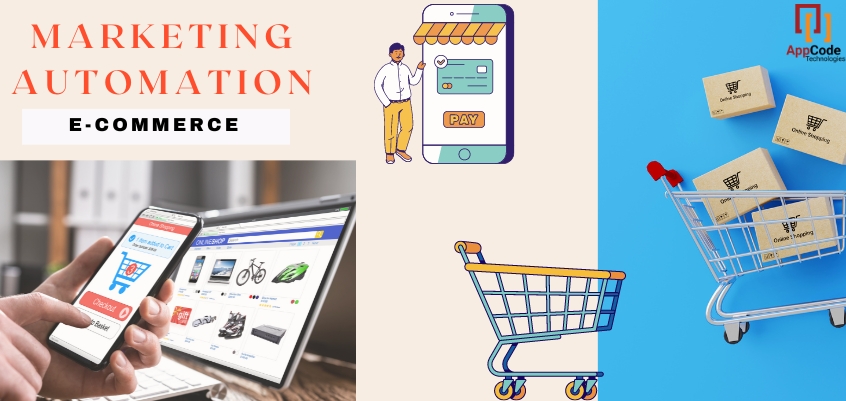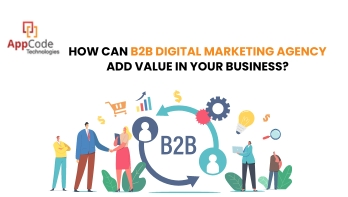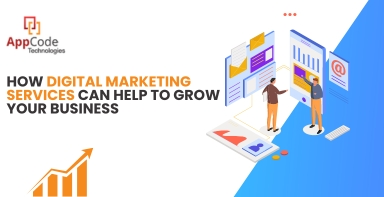
Ecommerce Marketing Automation: How to Boost Sales and Save Time
 13 Dec 2023
13 Dec 2023
 AppcodeTechnologies
AppcodeTechnologies
In today's rapidly evolving digital landscape, Ecommerce businesses are constantly seeking innovative ways to enhance their sales and streamline their operations. Ecommerce marketing automation has emerged as a game-changer, enabling businesses to not only increase sales but also save valuable time.
As an ecommerce business owner, you know that marketing is a crucial part of your success. However, marketing can be time-consuming and overwhelming, especially if you're doing everything manually. That's where ecommerce marketing automation comes in. Email automation (64%), profiling and targeting (26%), and personalization via dynamic content (23%) are the top three marketing automation tactics employed by marketers.
What is ecommerce marketing automation?
The use of software to automate marketing operations and workflows is known as ecommerce marketing automation. This may involve lead generating, social media management, email marketing, and other activities. By automating these tasks, you can save time and increase efficiency.
Understanding Ecommerce Marketing Automation
Ecommerce marketing automation refers to the use of technology and software to automate various marketing tasks and processes. This includes but is not limited to email marketing, social media campaigns, customer segmentation, abandoned cart recovery, personalized recommendations, and more. The goal is to create a seamless and personalized shopping experience for customers while reducing manual intervention.
Benefits of Ecommerce Marketing Automation
Enhanced Customer Engagement:
Marketing automation allows businesses to segment their customer base and send tailored messages based on preferences, behavior, and purchase history. The engagement and conversion rates are higher with this tailored strategy.
Personalized Shopping Experience:
Automation tools can analyze customer data to provide personalized product recommendations, creating a sense of individualized attention and improving the chances of cross-selling and upselling.
As Per an (Experian) report Personalized emails have a 29% higher open rate and 41% higher click-through rate than generic ones.
Abandoned Cart Recovery:
One of the biggest challenges for Ecommerce businesses is abandoned carts. Marketing automation tools can automatically send reminder emails to customers who left items in their carts, encouraging them to complete the purchase.
Time Savings:
By automating repetitive tasks like sending emails, posting on social media, and managing customer data, Ecommerce businesses can free up valuable time that can be better utilized for strategic planning and growth-oriented activities.
Consistent Brand Messaging:
Automation ensures that your brand's messaging remains consistent across different channels, strengthening your brand identity and recognition.
Data-Driven Insights:
Automation platforms generate valuable insights and analytics, providing businesses with data on customer behavior, campaign performance, and more. This information can be used to improve tactics and make wise decisions.
Implementing Ecommerce Marketing Automation
Select the Right Tools:
There are numerous marketing automation platforms available, each with its own set of features. Research and select a tool that aligns with your business needs and goals.
Segmentation:
Divide your customer base into relevant segments based on demographics, purchase history, interests, and behavior. You can construct highly targeted campaigns using this segmentation.
Personalization:
Utilize automation to send personalized product recommendations, discount offers, and follow-up emails based on customer interactions.
74% of consumers express frustration when website content is not tailored, according to an Infosys survey.
Drip Campaigns:
Implement drip campaigns for lead nurturing and customer onboarding. These automated sequences gradually guide customers through the sales funnel.
Abandoned Cart Emails:
Set up automated reminders for customers who abandoned their shopping carts. Include compelling visuals and incentives to entice them back to complete the purchase.
Compared to non-automated emails, automated emails bring in 320% more money. Campaign Watch
Social Media Automation:
Schedule and automate social media posts to maintain a consistent online presence without manual intervention.
Analytics and Optimization:
Regularly review the analytics provided by your automation tool. Use the insights to refine your strategies, experiment with different approaches, and optimize your campaigns for better results.
Conclusion
Ecommerce marketing automation offers a powerful solution for businesses aiming to boost sales while efficiently managing their operations. By harnessing the capabilities of automation tools, Ecommerce businesses can create personalized experiences, engage customers effectively, and recover potentially lost sales. As technology continues to advance, embracing ecommerce marketing automation has become not just a competitive advantage, but a necessity for sustainable growth in the digital marketplace. So, take the leap, automate your marketing efforts, and witness the transformation in your sales figures and operational efficiency.
Ecommerce marketing automation involves using technology and software to automate various marketing tasks in online businesses. This includes tasks like sending emails, segmenting customers, recovering abandoned carts, and more.
Ecommerce marketing automation can increase sales by sending personalized recommendations to customers, recovering abandoned carts through reminder emails, and running targeted campaigns based on customer behavior, which all lead to higher engagement and conversions.
Ecommerce marketing automation offers benefits such as enhanced customer engagement, personalized shopping experiences, abandoned cart recovery, time savings through task automation, consistent brand messaging, and data-driven insights for refining strategies.
Absolutely. Ecommerce marketing automation can be tailored to fit the needs and scale of any business. Many automation tools offer plans suitable for small businesses, helping them engage customers effectively and save time.

The Power of Email: How to Stay 'Top of Mind' with Your Customers

How Marketing Brand Can Boost Your Sales and Profits?

AI Solutions for Successful Digital Marketing: Elevate Efficiency and Performance

What is ROAS in E-Commerce? How to Maximize Your Return On Ad Spend?

Optimizing Ecommerce Sales Through Google Ads

The Power of Email: How to Stay 'Top of Mind' with Your Customers

How Marketing Brand Can Boost Your Sales and Profits?

AI Solutions for Successful Digital Marketing: Elevate Efficiency and Performance

What is ROAS in E-Commerce? How to Maximize Your Return On Ad Spend?

Optimizing Ecommerce Sales Through Google Ads

Points to Consider When Using B2B Digital Marketing

How to increase your ECommerce Online Store Sales?

How can a B2B Digital Marketing Agency add Value in Your Business?

What are consumer insights in digital marketing, and how brands can use them ?




 Digital
Digital Ecommerce
Ecommerce Marketing
Marketing Search Engine
Search Engine Social Media
Social Media Web
Web Hire
Hire


